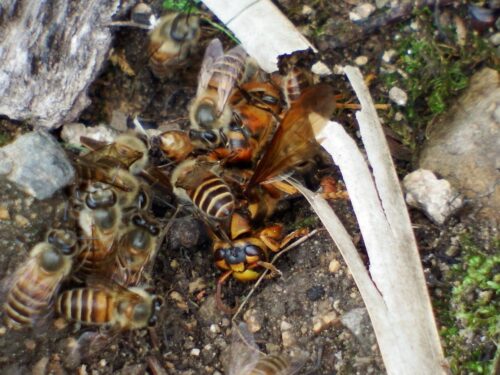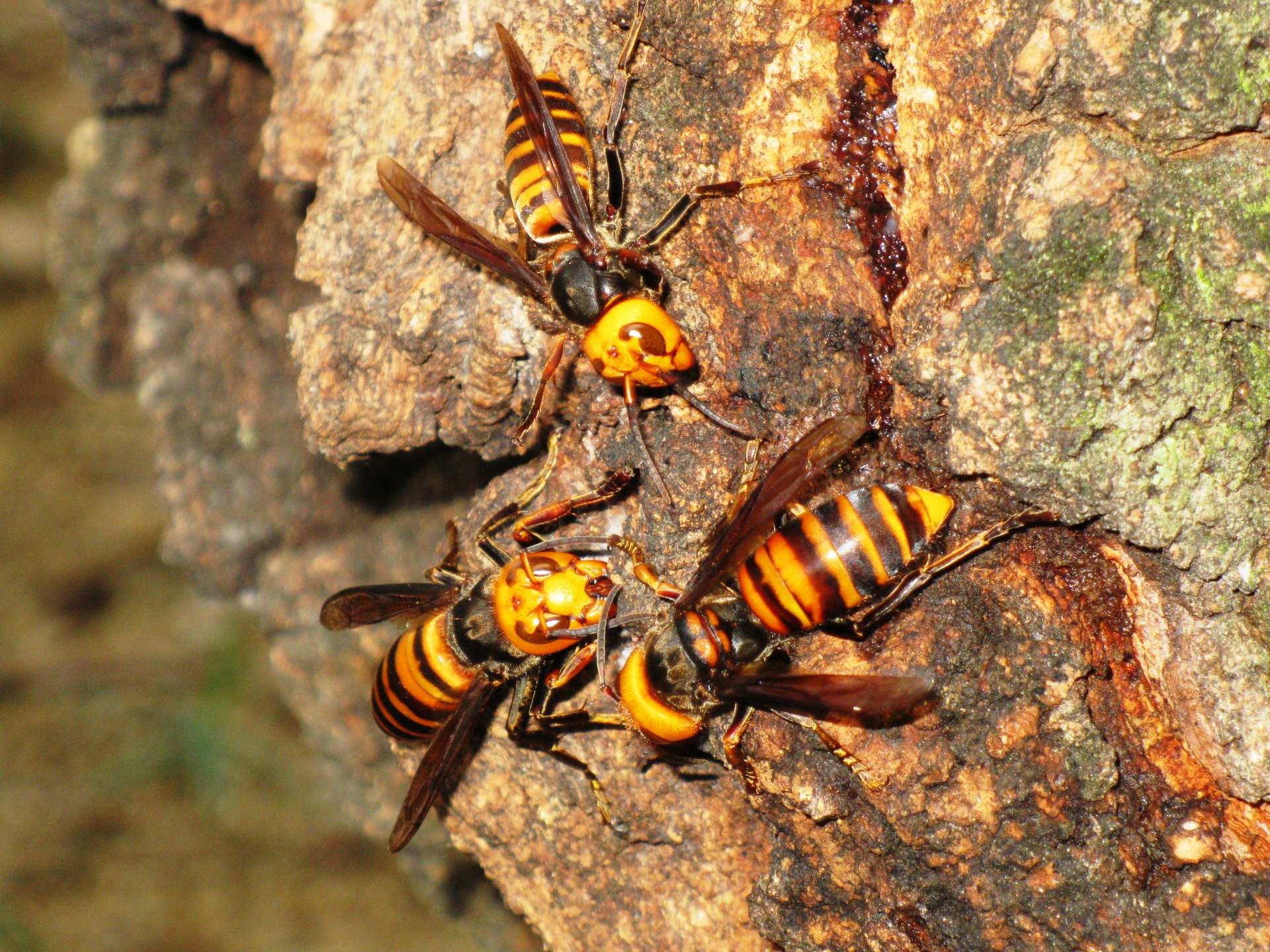The taste of fear: Japan’s priceless, fickle honey
Have you ever tried honey made in Japan? It is shockingly expensive compared to imports from major exporters like China and Argentina. While most Japanese honey is made by European honey bees, the true prize is the honey made by the native Japanese honey bees. This is the stuff that is incredibly high-priced—and from what I’ve heard, I suspect it is absolutely delicious. Tragically, despite having lived in Japan for over 40 years, I have never managed to taste it. It is that rare.
Japanese honey bees are slightly smaller than their European cousins. This means their longer nectar-collecting time effectively ages the honey like a fine wine, diversifying the flower ingredients. In essence, the resulting flavor possesses a rich terroir unique to the Japanese landscape.
Another reason for the cost is the difficulty of rearing them. Unlike highly cooperative European honey bees, the native bees are inherently fickle, sometimes abandoning their hive for no apparent reason. Funnily enough, this seeming failure as a domesticated insect—this strategic resource abandonment—is one of the main reasons they can survive in Japan: the empire of the Japanese giant hornet.
The true king of the jungle: The horror and the strategy
The undisputed king of insects in Japan is the Japanese giant hornet (Vespa mandarinia). They are the biggest hornets in the world, measuring 40 to 50 mm, sitting right at the top of the food chain. They are truly terrifying and, yes, they kill an average of 30 people every year in Japan, earning the chilling nickname, “giant killer hornet.”
For river fishermen like me, the giant hornets are a serious, immediate threat. If I hear their heavy, low-frequency buzz, followed by the spine-chilling warning sound they make by clacking their jaws, I believe I have no choice but to drop everything and sprint.
They aggressively attack and annihilate almost all other hornet species, let alone honey bees. The brave European bees fight back to the last one, and the giant hornets simply slaughter them. The native Japanese honey bees, however, operate differently. It is fascinating that they will fight, but they also execute a strategic retreat, fleeing without hesitation if the attacking force is overwhelming.
Yet, when they do fight, their strategy is a masterclass in biological warfare. When a scout hornet arrives, the Japanese bees swarm it, forming a “bee ball.” They vibrate violently, killing the hornet by cooking it with collective heat (around 47°C or 116.6°F), which is just slightly above the hornet’s heat tolerance. The bees themselves can endure up to 46°C. This is not mere defense; it is a meticulously evolved, high-risk collective sacrifice—the ultimate “minimal loss for maximum effect” maneuver.

Arch-enemy or keystone species? The unsettling truth
I’ve given up so many perfect fishing spots because of the giant hornets. They are my arch-enemy, and I used to dream of a world without them. I finally found that world, but it was far from a paradise. It was Okinawa, the southernmost prefecture, completely opposite to our home in Hokkaido.
In Okinawa, European honey bees have been able to successfully colonize many natural tree hollows, displacing small native animals. Worse still, due to the absence of this top predator, there is an overabundance of other, smaller hornet and wasp species. These smaller insects invade human living areas and attack people more frequently than the giant hornet does in the north.
In view of what has happened, the role of the Japanese giant hornet becomes clear. They act as a keystone species—a fierce natural guard whose dominance keeps the entire ecosystem balanced. They are the ultimate predator that prevents other, smaller insect populations from exploding and causing chaos.
The fierce guardians of our wooden furniture
Furthermore, the overabundance of certain smaller wasps in areas without the giant hornet causes serious damage to trees by depositing their eggs inside. This poses a significant threat, especially to us, as wooden furniture manufacturers.
The Japanese giant hornet, the “killer” that strikes fear into every fisherman and hiker, is also the fierce, necessary guardian of the Japanese forest. By controlling the populations of harmful insects, they ensure the health of the very wood we depend on.
Nature is indeed well-made, I believe, even if its most vital protectors are our most terrifying arch-enemies. It is a sobering reminder that often, the biggest threat is the one that is secretly keeping the peace.
While the Japanese honey bees use a collective heat of 47°C to eliminate their invaders, we prefer a different kind of intensity. We’ve combined the resilient wood of the northern forests with the vibrant energy of a global pop phenomenon. It’s a fusion as calculated as a ‘bee ball’—but far more comfortable to sit on. Discover the Hatsune Miku Art Chair.


Shungo Ijima
Global Connector | Reformed Bureaucrat | Professional Over-Thinker
After years of navigating the rigid hallways of Japan’s Ministry of Finance and surviving an MBA, he made a life-changing realization: spreadsheets are soulless, and wood has much better stories to tell.
Currently an Executive at CondeHouse, he travels the world decoding the “hidden DNA” of Japanese culture—though, in his travels, he’s becoming increasingly more skilled at decoding how to find the cheapest hotels than actual cultural mysteries.
He has a peculiar talent for finding deep philosophical meaning in things most people ignore as meaningless (and to be fair, they are often actually meaningless). He doesn’t just sell furniture; he’s on a mission to explain Japan to the world, one intellectually over-analyzed observation at a time. He writes for the curious, the skeptical, and anyone who suspects that a chair might actually be a manifesto in disguise.
Follow his journey as he bridges the gap between high-finance logic and the chaotic art of living!

